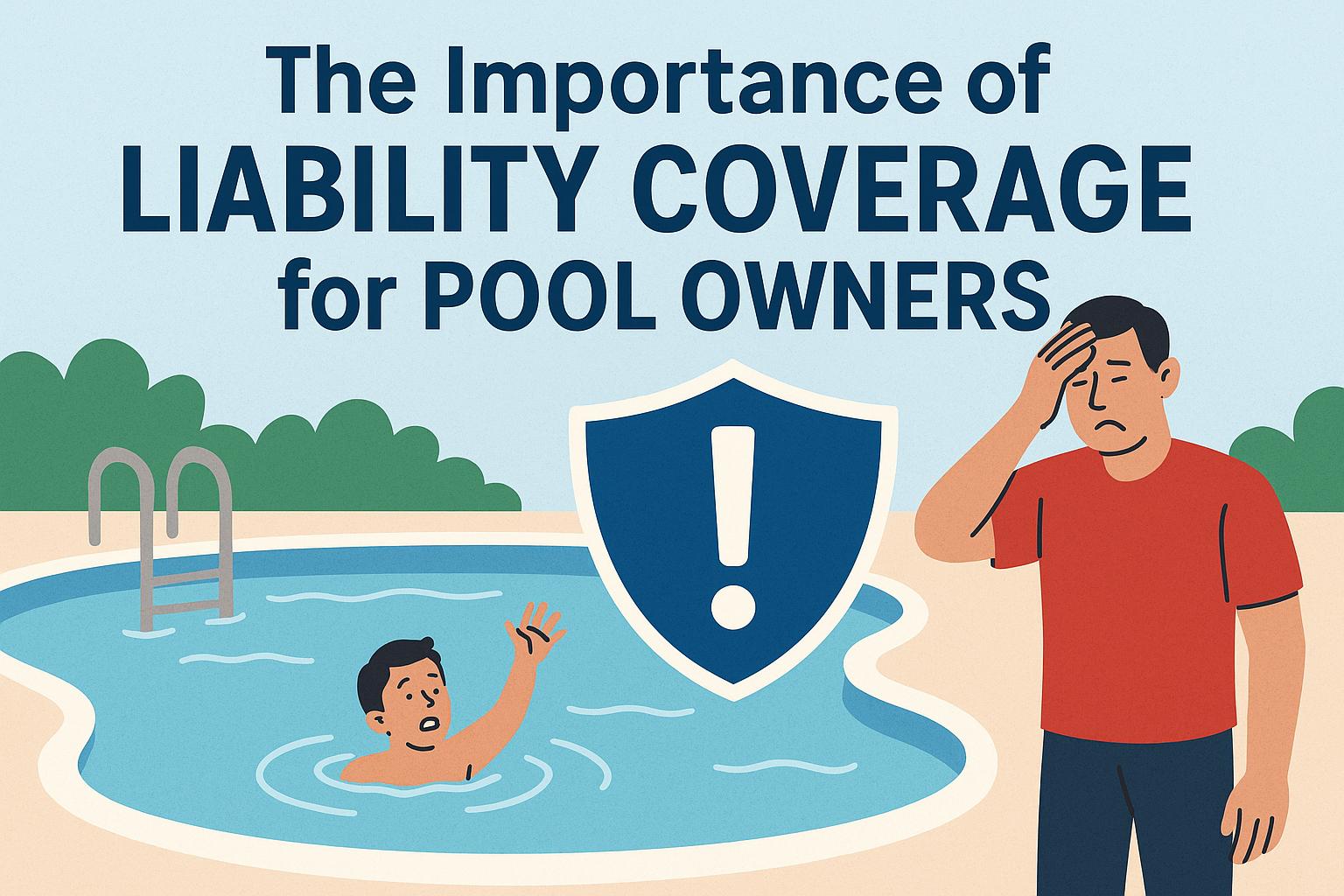Understanding Liability Coverage for Pool Owners
Owning a swimming pool is often seen as a symbol of luxury and leisure. It adds significant value to a home, providing a private oasis where families can enjoy countless hours of fun, relaxation, and entertainment. However, with this luxury comes considerable responsibility, particularly in the realm of safety and liability management. Many pool owners may not fully realize the potential risks and liabilities associated with owning a pool. Consequently, it becomes essential to understand the importance of liability coverage as a fundamental component of owning and operating a pool within a property covered by a homeowner’s insurance policy.
What is Liability Coverage?
Liability coverage, in its essence, is a protective measure incorporated into an insurance policy that shields the policyholder from financial claims stemming from injuries or damage incurred by other individuals or their property. For pool owners, this type of coverage is indispensable. Given the inherent risks that come with having a pool, liability coverage plays a crucial role in safeguarding against potential financial losses should an unfortunate incident, such as an injury, occur in or near the pool area. The presence of water, slippery surfaces, and sometimes complex pool equipment significantly increase the likelihood of accidents, making liability coverage not just beneficial but crucial.
Why Liability Coverage is Essential for Pool Owners
Risk of Accidents and Injuries
While swimming pools offer a venue for enjoyment and exercise, they are also environments where accidents are more likely to happen. Surfaces around the pool can become slippery, diving boards pose fall hazards, and even the presence of deep water poses serious risks, especially for children or inexperienced swimmers. Unfortunately, accidents can and do occur, even in safely maintained pools. Ensuring you have liability coverage helps to protect you from the financial burden that can arise when someone gets injured in your pool area.
Legal Obligations
In many regions, statutes and local ordinances emphasize the legal responsibilities of pool owners, sometimes even mandating the possession of liability insurance. These laws are put in place due to the significant liabilities that pool owners may face, given the inherent dangers of having a pool on one’s property. It becomes critical, therefore, to review the local regulations within your jurisdiction to ensure compliance and understand the legal necessity for liability insurance. Non-compliance not only exposes a pool owner to more significant financial risks in the event of an accident but could also lead to legal penalties.
Financial Protection
The potential for financial devastation following a pool-related accident is substantial. Legal battles and medical bills can escalate quickly, leading to considerable out-of-pocket expenses for the pool owner. Liability insurance, in this context, acts as a financial safety net. It prevents unforeseen expenses from crippling your financial standing, preserving your financial peace of mind while allowing you to enjoy your pool without constant worry about what might go wrong.
Types of Liability Coverage for Pool Owners
Homeowners Insurance
Most standard homeowner’s insurance policies contain some level of liability coverage. However, the onus is on the pool owner to ascertain the scope of this coverage, particularly if a pool is present. Not all homeowner policies automatically cover pools, or if they do, the coverage might not be sufficient. It’s imperative to know the maximum coverage limits and exclusions within your policy to fully understand whether it adequately covers incidents involving guests, children, or even potential intruders.
Umbrella Policy
For those seeking elevated protection, an umbrella policy is an attractive option. These policies provide extra liability coverage that exceeds the limits of a standard homeowner’s policy. They are beneficial in situations where homes act as hubs for social gatherings, increasing the footfall and, consequently, the risk of incidents. An umbrella policy provides broader peace of mind, covering larger claims that basic homeowner’s policies may not, thus giving pool owners a higher degree of financial protection.
Ensuring Adequate Coverage
Given the diverse array of risks associated with pool ownership, it is important for pool owners to continually review their coverage options. Regular communication with an insurance professional can help assess whether a current policy meets the necessary coverage requirements or if additional modifications are needed. Beyond insurance, implementing safety measures, like installing childproof fences, alarm systems, or pool covers, can significantly reduce liability risks and, in some cases, might lower insurance rates.
Conclusion
Owning a pool is as much a responsibility as it is a source of joy. The tranquility and enjoyment it brings to a homeowner’s life are unmatched, but they come hand-in-hand with potential risks that necessitate proactive management. By ensuring adequate liability coverage, pool owners can enjoy their pool facilities with a peace of mind, knowing they are secured against the financial implications of potential accidents. Simplifying this aspect of pool management lies in thoroughly understanding your insurance coverage and ensuring it aligns with your needs. For deeper insights and tailored advice, seeking counsel from an insurance expert is a prudent step.
